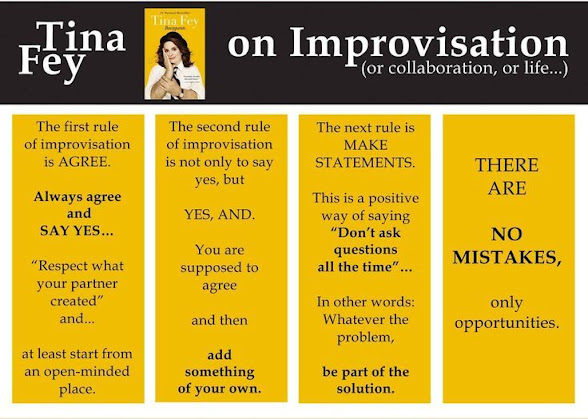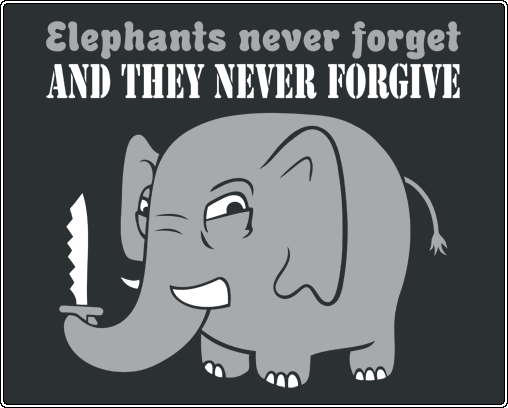Part IV in our seemingly never ending series...
This week some ideas on what makes your company different , is it a software toolset? who knows - read on to keep growing your business. Hat tip to Compliance Expert Health Wruble for the excellent content.
Happy Friday..
As a C-level consultant and business owner, I was recently reminded of a public speaking course I took back in graduate school. One of our professors, Michael LLorenz was tasked with getting us prepared to make solid presentations in the real world. His public speaking course was essential for his students and one of the most important and practical courses we have taken. His wisdom helps his students to this day forge ahead in the business world and most of his students still keep in touch with him, which shows the impact he has had and still has on his students.
One of the many speeches assigned to me resonated with me at the time and I still use it as a
management training tool, I apply it to every business situation I have gotten myself into including working in securities, in real estate, and in owning a bar, and it works. All you have to do is apply the lessons presented in the speech to each situation. Of course, you have to think outside the box: which was the point of the lesson, so many years ago.
The speech was Thinking Strawberries, Everybody Sells by James Lavenson who first presented this speech to the American Medical Association in February 1974. Mr. Lavenson was the president of the Plaza Hotel in New York City. At the time he gave this speech, he wasn’t a “hotel man”, because before he headed the Plaza Hotel, he was a corporate marketing director for Sonesta Hotels, which owned the hotel at that time. He commented within the speech that the Plaza, one of the most well-known hotels in all of New York City, perhaps the world, was losing money, so they said how bad could it get with Mr. Lavenson at the helm.
Everyone is selling!
First and foremost, understand your employees and your customers. If you understand and respect your employees, you will be better able to motivate them. Educate them on the products they sell, do not just send them out and expect them to sell. Think Strawberries taught me that a good business has everyone selling all the time.
Lesson one, respect your employees. Once, I had the perfect saleswoman working for me in my cigar club: she was bright, energetic and always smiling, but she had never worked with cigars or wine before. I spent several days with her showing her each and every product, teaching her about cigars, showing her how to light and smoke a cigar, all about the various bottles of wine I sold, before you knew it she wouldn’t just sell you a glass of wine but the entire bottle and you wouldn’t just buy one cigar you would walk out with ten. She became my top saleswoman, everyone loved her, you walked through the door, you received a smile, she called you by your name, and she gave you a big hug. I explained to her that I might make more money from selling a single glass of wine; however, if the rest of the bottle of wine didn’t sell within a few days I would risk the remainder spoiling having to be discarded.
I explained that it was less costly for customers having three or more glasses to buy the entire bottle. Also, the more bottles I sold, the larger my discount from the distributors. So, in the end it worked out for all of us: she got a bigger tip, the customer got a great deal, and I made my profit and then some. She loved coming to work and my customers loved her.
At the same time, the customer doesn’t want to be just another sale. They want to feel special. They do not appreciate getting a feeling of being used. Without a strong customer base, you won’t get far.
Lesson two, respect your customers. I have a friend, let’s call him Jerry. He sells cars, but he isn’t your typical car salesman. You know the type, you buy a car and drive away feeling dirty. Jerry and his family go out of their way for their customers because they know and respect their customers, they buy the cars their customers want. As a result, they have not only repeat customers, but also generational customers .These are signs of a solid customer base. It's not because they have the best pre owned cars around, which they do. It's because they get to know their customers’ needs and work hard to ensure the customer drives away in a car they want and can afford. Jerry and his family “think strawberries.” If you want a hard to find car, give Jerry the description and budget and he will find it, and if you are in California and don’t trust the sales team there you can order from Jerry in New Jersey, he will face time the car with you, spend as long as you want on the phone answering questions, take as many pictures of the car you want or even a video and once you are ready he will ship it straight to you. Want your oil changed? He does that. Want your car serviced, that too.
He sells strawberries, no lemons, because he respects and understands his customers. In return, they trust him and his cars. Respect your customers and respect your employees. Consider again the Plaza Hotel. Mr. Lavenson realized that his sales-oriented message wasn’t getting to all 1400 employees through his newsletter because half of them didn’t read or speak English well. Recognizing the problem, he re-published the employee newsletter in Spanish and English and gave free English language lessons, demonstrating his respectful and caring communication.
Think Strawberries was published years before my father ran his businesses, but this amazing man and a phenomenal business man instinctually embodied its ideas, without ever reading or hearing the speech. He once owned a dry-cleaning plant, and every Thanksgiving and Christmas he would give turkeys or ham to his employees. The first time I saw this, I was impressed but noticed that not one of them said thank you. My father told me he isn’t doing this for recognition or a thank you, but to ensure that they have an amazing holiday with their families, if they had one less expense to think about during the holiday season, then my father was happy and so were his employees. Because of the way my father treated his employees they stayed with him longer, worked harder and respected him more, he built a following where people wanted to work for him, saving him a lot of time and costly training costs.
Thinking Strawberries, Everybody Sells by James Lavenson, presented to the American Medical Association in February 1974
I want to thank Michael LLorenz, a mentor and one of my undergraduate and graduate school professors for developing my abilities as a young lad in college and graduate school. After 20 plus years, we are still in contact.
Heath Wruble, is an accomplished business leader who now resides in South Florida, he is available for big idea consulting contracts or to help build a more efficient business for tomorrow.
The views expressed in this commentary are the personal views of the author and do not necessarily reflect the views of anyone else.













